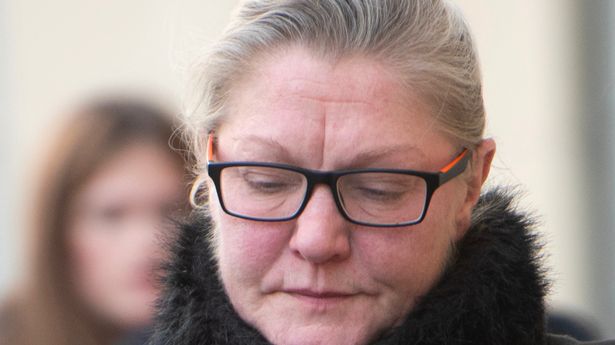A middle-aged daughter who suffocated her terminally-ill 88-year-old father with a pillow as an act of mercy has admitted his manslaughter.
Dr Lisa Davenport appeared before a High Court judge on Thursday to plead guilty to manslaughter as an alternative to the murder charge she was facing following the death of her cancer-stricken father Barrie Davenport.
The court was told Davenport, 55, gave her dad "devoted care" but, when his pancreatic cancer reached advanced stages, she killed him to end his suffering. Her guilty plea to manslaughter based by reason of diminished responsibility was accepted by the prosecution.
John Price, prosecuting at Oxford Crown Court, said the case came to light when Davenport, an academic, admitted the killing to another resident of the care home where her father living and to one of the managers.
The defendant will appear for sentencing at the same court on February 7, 2025. She was released on conditional bail. High Court Judge Mr Justice Linden was told Mr Davenport was bed-bound and largely unconscious when his daughter ended his life, and the pensioner was expected to die a natural death as a consequence of his diseases.
But Davenport, from Banbury, Oxfordshire, wanted to end her father's "very considerable pain," the court was told. The judge said: "For the record our, understanding is that the plea is on the basis of diminished responsibility and it is a plea which is acceptable to the Crown.
"As the court knows, the deceased in this case is the defendant's father. At the time he died in October 2022 he was a man in late 80's who was in the advanced stages of terminal pancreatic cancer."
Mr Davenport was diagnosed with terminal pancreatic cancer in August 2022. Within weeks, he was in very considerable pain and the palliative care, whilst up to standard, was diminishing in its effect. He had a high degree of agitation consistent with suffering, the court heard.
Mr Price added: "The foundation of the prosecution case was the defendant's own confession to others about what she had done. The evidence established that from that date until the date he died, he could not have had a more devoted carer or better familial care than was provided to him by this defendant. It was in that context that she took his life."
Mr Justice Linden heard that Dr Davenport was examined by three consultant psychiatrists. Mr Price said: "Their opinions are unanimous in finding at the time of the killing, Dr Davenport was suffering abnormality of mind attributed in her case to more than one recognised medical condition.
"There was a clear history of clinical signs and symptoms of the conditions diagnosed by doctors when they assessed her in October and November this year." He added there is a "long established pre-existing history."
Mr Price concluded: "She was, at that time, unable to acknowledge what she had done. It was in that context the reports were prepared.
"The psychiatrists were each of the opinion that it had substantially impaired her ability to act rationally and to exercise self-control and it provided an explanation for what she had done. Those opinions by the doctors seemed to the professionals, to be of compelling weight.
"The prosecution formed the view that if this case went to trial the burden placed upon the defendant to establish this defence to the civil standard, was likely to be achieved. If there were a plea of guilty to manslaughter on this basis, the proper course would be to accept it for the reasons I have outlined."
Mary Prior counsel representing Dr Davenport, said her client had no previous criminal convictions, cautions or reprimands. Ms Prior said: "Her sister and her brother, who have supported her since this matter came before the courts, will also prepare documents for the court to consider in terms of impact upon them of the death of their father.
She told the judge: "You will understand this was, as the Crown fairly pointed out, a loving, devoted daughter who was the primary carer for her father who had been unwell for many years but terminally ill more recently."
The court heard the defendant was in constant contact with those providing palliative care - for which she had the burden of responsibility because her father did not want to move into a hospice.
Ms Prior said: "Regrettably the conditions she has suffered from for many years were not properly treated or diagnosed at the time this was going on. We will characterise this at sentencing hearing as a matter of mercy."
